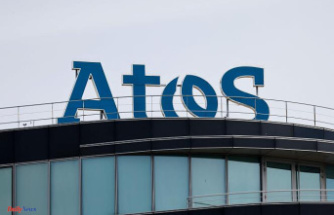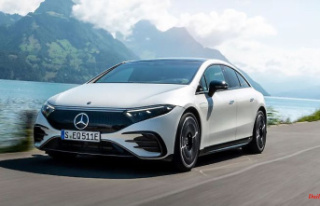Deutsche Bank is in the black for the ninth quarter in a row. The money house sees this as the result of the consistent implementation of the strategy. While the turnaround in interest rates is pushing securities transactions, the Rottift is being applied to investments.
The end of the zero interest rate policy and earnings from corporate customers are catching the doldrums in investment banking at Deutsche Bank. The bottom line is that the money house made a profit of 1.1 billion euros, almost six times as much as in the same period last year, as announced by the largest German money house. Analysts had expected less. "We achieved our highest result in more than a decade," said bank boss Christian Sewing. It was the ninth straight quarterly profit for Deutsche Bank.
In the third quarter, Deutsche Bank earned around 1.6 billion euros before taxes - almost three times as much as a year earlier. It was also the highest pre-tax profit in a third quarter since 2006. Profits from investment banking rose by six percent year-on-year to just under 2.4 billion euros. According to insiders, the institute is nevertheless laying off several dozen investment bankers in London and New York because of the weak business with takeovers and mergers. The bank expects that the volatile capital markets will continue to weigh on income in the investment bank, but the turnaround in interest rates will increase profits in the securities business.
The bank reacted to the increased risk of loan defaults with a risk provision of EUR 350 million - three times as much as in the same quarter of the previous year. "We remain confident in our solid loan book and have reiterated our guidance that we expect full-year provisioning to be approximately 25 basis points of average loan size," Sewing wrote to employees.
Total income increased by 15 percent to 6.9 billion euros. "We are right on track to achieve our goals for 2022," said the head of the bank. "Since we announced our strategy in July 2019, we have never let ourselves be diverted from our path - despite the major changes and macroeconomic shocks of the past two years."
For investors, the quarterly figures from Deutsche Bank and several other European institutions such as Barclays, Unicredit and Santander are an important indicator of the effects of the energy crisis, the slowdown in the global economy and the increase in the key interest rate.












